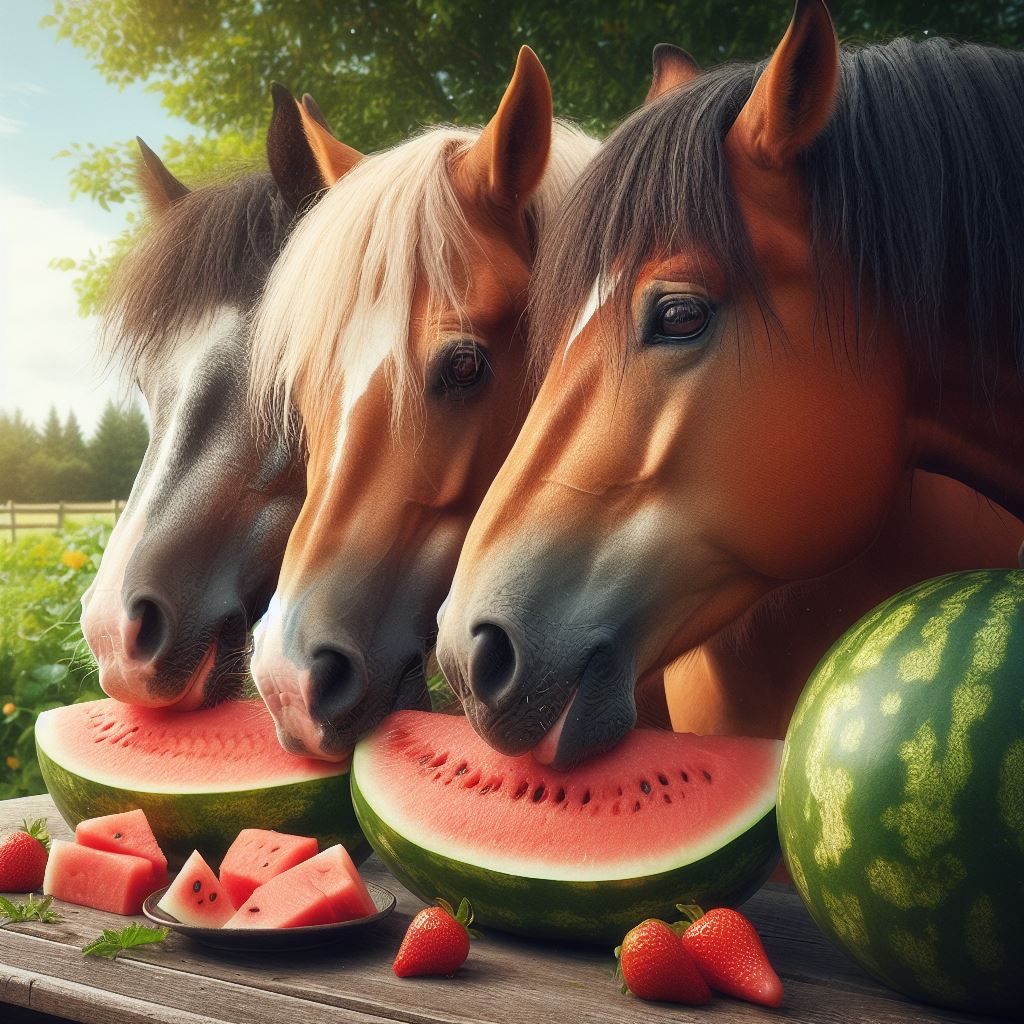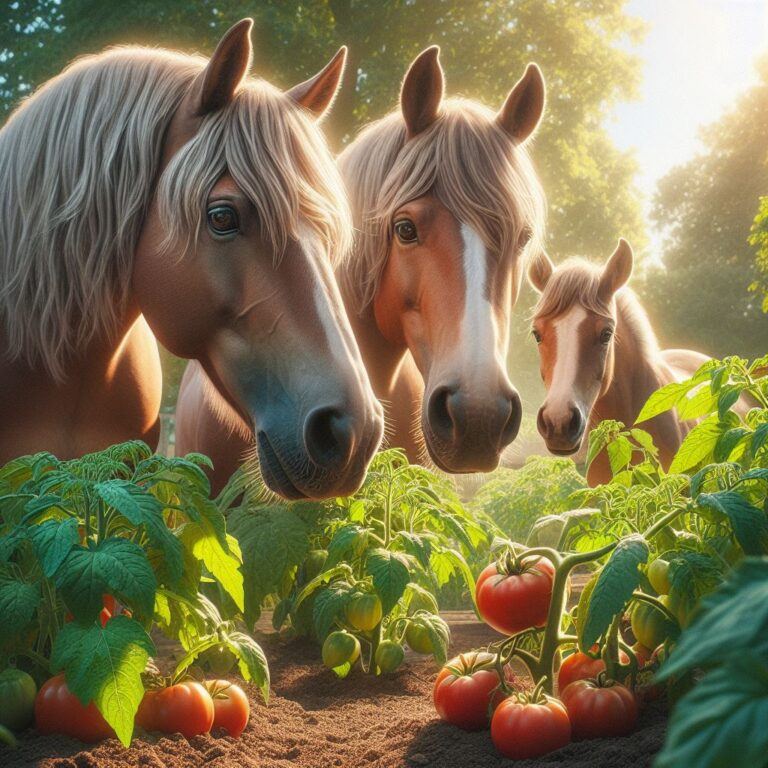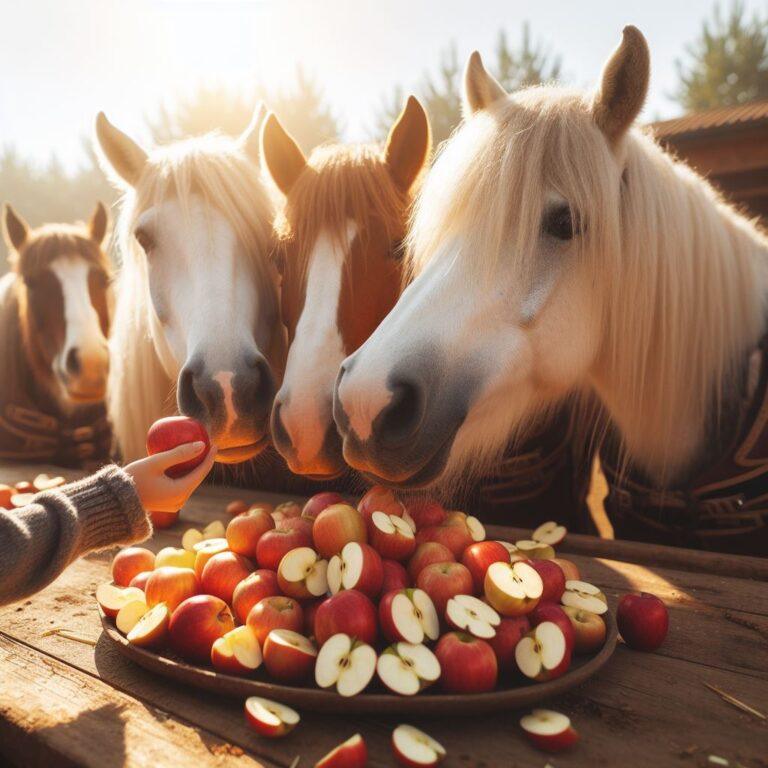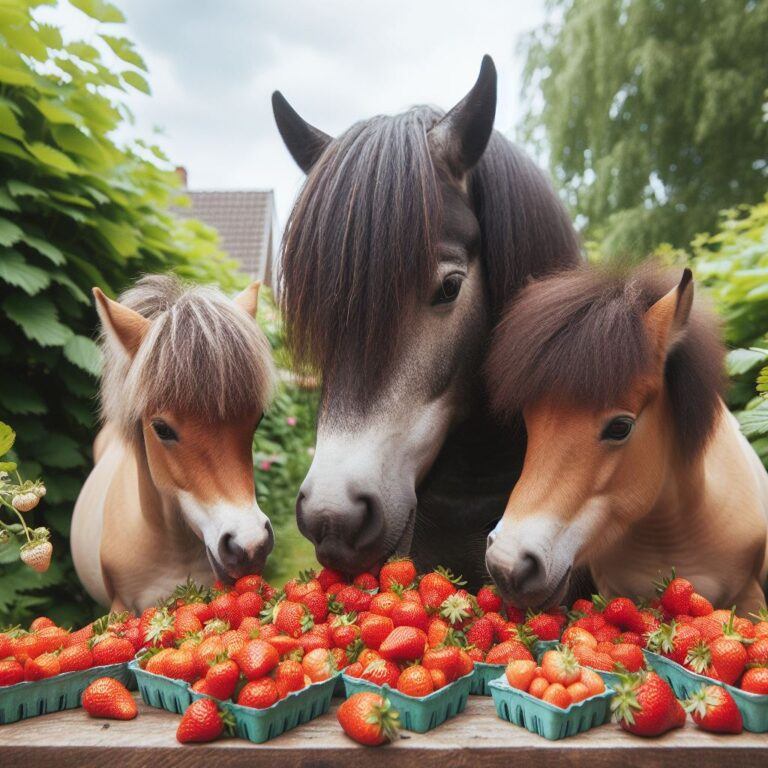Can Horses Safely Eat Watermelon
Horses can indeed safely eat watermelon in moderation, which includes ingesting the rind and seeds. This sweet fruit offers not only hydration but also vitamins, such as Vitamin A, which supports vision, and Vitamin C, an antioxidant.
When including watermelon or any new treat in your horse’s diet, it’s crucial to introduce it slowly. This gradual introduction allows their digestive system to adjust and can help prevent any potential issues.
Moderation is the key when adding watermelon to a horse’s diet. Although the fruit is low in calories and contains beneficial nutrients, too much can potentially lead to digestive upset due to its high water and sugar content.
A horse’s digestive system is sensitive and used to a high-fiber, forage-based diet mainly consisting of fresh hay so it’s essential to maintain balance.
Before offering watermelon to your horse, ensure there are no underlying health conditions, such as diabetes or metabolic issues, which could be made worse by the fruit’s natural sugars.
Also, you should avoid feeding watermelon to horses that are prone to choking, as the rind can pose a risk if not prepared properly.
Feeding watermelon as a treat can be a refreshing reward for horses, especially on warm days. Beyond its hydration benefits, the bonding experience we share with our horses while feeding them can be very positive.
What is the Right Way to Feed Watermelon to Your Horse
Introducing watermelon into your horse’s diet requires a bit of know-how to ensure you’re doing it correctly and safely.
The general rule of thumb is to start SLOWLY. Try offering a small piece to see how your horse reacts. If there’s no adverse reaction after 24 hours, you can gradually increase the amount.
Please avoid feeding large quantities all at once, like us, sudden changes in diet can upset a horse’s stomach.
Portion size matters significantly to avoid any digestive upset. A couple of small chunks equivalent to a few bites for your horse can make for a perfect treat.
Keep an eye on their size and dietary requirements to determine the maximum they should have. Remember, treats should make up no more than 10% of your horse’s daily food intake to maintain a balanced diet.
When it comes to serving, ensure the watermelon is fresh and clean. Cut it into chunks or strips that can be easily managed by your horse.
Some owners prefer removing the seeds, however, they are generally not harmful. Don’t forget the rind as this is safe for horses to nibble on too, it’s a great source of fiber, but I always remove any green parts as they can be tough to digest.
Watermelon is not only a tasty treat but also a wonderful source of hydration, especially during the summer.
You can give it as a refreshing snack during training sessions or after a workout to help replenish fluids. My horses absolutely love it!
Always keep a clean supply of water available as well, as proper hydration is crucial for our horse’s health.
Understanding Your Horse’s Diet and Nutritional Needs
Nailing down a horse’s nutritional needs is vital for its health and vitality. A horse’s diet primarily hinges on forage, like grass and hay, which should constitute the bulk of their intake.
Each horse, depending on its age, weight, and workload, will have varying requirements for proteins, vitamins, and minerals.
While watermelon can be a delightful treat that adds variety and aids in hydration, especially on hot days, it’s by no means a staple.
Think of it like a dessert after a well-rounded meal, a small piece is enough to satisfy the taste buds without overindulging.
Reaching out to a veterinarian or a horse nutritionist can offer invaluable insights. These professionals can tell you a lot about the specific needs of your horse and if introducing treats like watermelon is suitable for your horse’s health.
I always advise looking out for changes in your horse’s health or behavior after introducing new foods, such as watermelon or other fruits like apples or bananas.
These could include variations in weight, coat health, or digestion. If anything seems even slightly wrong, then please consult with your vet to make sure your four-legged friend isn’t experiencing a negative reaction.
Yes, horses can enjoy watermelon as a treat. Still, it’s crucial to maintain perspective on where it fits within the context of their overall diet.
With careful monitoring and professional guidance, we all can provide a diet that’s both nourishing and enjoyable for our horses.







